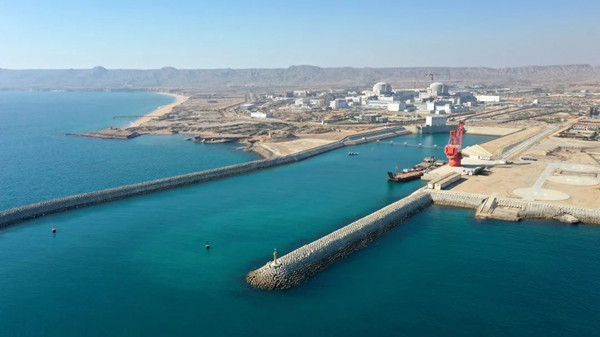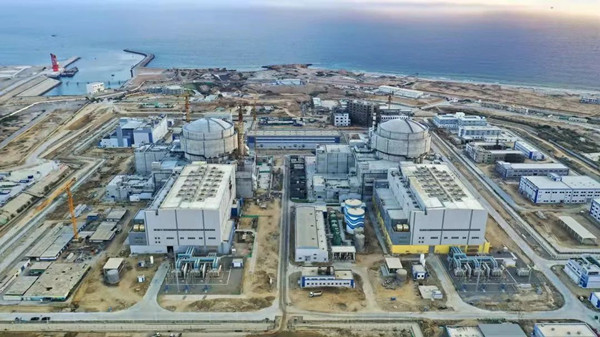World's fourth Hualong One unit connected to grid
Unit 3 of the Karachi nuclear power plant in Pakistan was successfully connected to the gird on March 4, laying a solid foundation for its commercial operation.
Karachi unit 3 is a Hualong One overseas demonstration project and the fourth Hualong One unit around the globe. Its connection to the grid means that all four Hualong One units at home and abroad have been connected to the grid.

It's part of the efforts jointly made by Chinese and Pakistani nuclear scientists to further deepen the comprehensive strategic and cooperative partnership of both countries in the new era, commit to green and low-carbon development, and help achieve the carbon peaking and carbon neutrality goals around the globe.
The peaceful use of nuclear energy to benefit mankind is the common goal of both China and Pakistan. Karachi units 2 and 3 were contracted to CNNC's China Zhongyuan Engineering Corporation (CZEC). The former has been put into commercial operation and was selected for recognition as a model for best practices in international energy cooperation.

Hualong One is CNNC's third-generation pressurized water nuclear reactor with full intellectual property rights. It was developed and designed based on more than 30 years of experience in nuclear power research, design, manufacturing, construction and operation, meeting the highest international safety standards. It is an important achievement of China's nuclear power development.
It is expected that each Hualong One unit will generate approximately 10 billion kWh of electricity per year after completion, meeting the annual demand of electricity of more than 4 million households in Pakistan. This is equivalent to reducing standard coal consumption by 3.12 million tons, cutting carbon dioxide emissions by 8.16 million tons, or planting more than 70 million trees. It will play an important role in optimizing Pakistan's energy mix, bringing global carbon dioxide emissions to a peak, achieving carbon neutrality and jointly addressing the global climate crisis.
- China Institute of Atomic Energy
- Nuclear Power Institute of China
- Southwestern Institute of Physics
- China Nuclear Power Operation Technology Corporation, Ltd.
- China Nuclear Power Engineering Co., Ltd.
- China Institute for Radiation Protection
- Beijing Research Institute of Uranium Geology (BRIUG)
- China Institute of Nuclear Industry Strategy (CINIS)
- China Nuclear Mining Science and Technology Corporation


